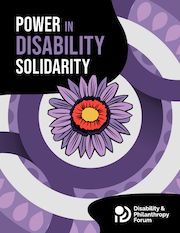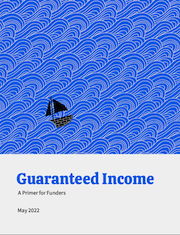Site Search
- resource provided by the Forum Network Knowledgebase.
Search Tip: Search with " " to find exact matches.
... Beverly Lynn , CEO, Programs for Parents Maria Ortiz , Executive Director, Student Life, Newark Board of Education ...
Event Type: Affinity Group Meeting
Topic: COVID-19
Funding Area: Newark Funders
... ongoing, important work,” said Carin Berkowitz, Ph.D., executive director of NJCH. “In that way, it mirrors the ...
News Type: News
... world to new audiences,” said Carin Berkowitz, Ph.D., executive director of NJCH. “They demonstrate that ...
News Type: News
Topic: Grantmaking
... for Camden students,” said Giana Campbell, Chief Executive Officer of Camden Education Fund. “This year, ...
News Type: News
Topic: Grantmaking
... general public. Collection of Information Through Our Web Sites We do not collect through our web site any ...
... are investments in the sustainability and longevity of sites significant to our state’s rich and diverse ...
News Type: News
Topic: Grantmaking
Publication Date: November, 2019
... Councils – BD has groups of employees at most of our sites who organize volunteer projects for local employees to ...
Resource Type: CNJG Documents/Reports
Audience: Corporate Giving
Topic: Corporate Philanthropy/CSR
... in the United States. SPEAKERS Basma Alawee , Deputy Executive Director, Community Sponsorship Hub Robin Mencher , ... for Refugees and Immigrants MODERATOR John Slocum , Executive Director, Refugee Council USA COST: Free for ...
Event Type: Partner
Audience: All Funders
... and Economic Policy Chris Melody Fields Figuredo , Executive Director, Ballot Initiative Strategy Center Justin Maxson , Executive Director, BuildUS (invited, pending confirmation) ...
Event Type: Partner
Audience: All Funders
... American Civil Liberties Union (ACLU) · Jasmine Rivera, Executive Director, Pennsylvania Immigration and Citizenship Coalition (PICC) · Laura Martin, Executive Director, Progressive Leadership Alliance of Nevada ...
Event Type: Partner
Audience: All Funders
... burgeoning field. Speakers : Swapna Reddy, Co-Founder & Executive Director, ASAP Daisy Magnus-Aryitey, Co-Founder & Co-Executive Director, Code the Dream Bartlomiej Skorupa, ...
Event Type: Partner
... strategy sessions. SPEAKERS · Jeremy Robbins, Executive Director, American Immigration Council · Tessa Petit, Executive Director, Florida Immigrant Coalition · Raha Wala, ...
Event Type: Partner
Audience: All Funders
Publication Date: January, 2025
... sector's leading source of comprehensive data on U.S. foundation staff, helping organizations of all sizes craft ...
Audience: All Funders
The Community Foundation of South Jersey formally launched in 2008 after ... members through the work of CNJG formed The Community Foundation of South Jersey . CNJG is extremely proud to have played a role in building the foundation to serve South Jersey for generations to come. ...
The Healthcare Foundation of New Jersey is pleased to announce that it has ... dual psychiatric and physical disorders. The Healthcare Foundation of New Jersey operates on a quarterly grant-making cycle. The foundation received a record number of proposals for the ...
News Type: News
Topic: Grantmaking
... This program is a CNJG membership benefit for family foundation members, including staff and trustees, in ...
Event Type: Partner
Audience: Family Foundation
Topic: Family Philanthropy
... This program is a CNJG membership benefit for family foundation members, including staff and trustees, in ...
Event Type: Partner
Audience: Family Foundation
Topic: Family Philanthropy
... This program is a CNJG membership benefit for family foundation members, including staff and trustees, in ...
Event Type: Partner
Audience: Family Foundation
Topic: Family Philanthropy
Publication Date: April, 2025

Five stories showcase disability solidarity in efforts from Black liberation, participatory grantmaking, art funding, community foundations, and much more. Collectively, each story demonstrates that when we unite as a community in solidarity, we can effectively dismantle ableism and advance all social justice movements.
Resource Type: Case StudyReportResource Guide
Audience: All Funders
Publication Date: May, 2022

This primer was developed to educate foundations, individual donors, and other funders about the ways in which guaranteed income and related cash-based policies not only strengthen low and moderate income communities and communities of color, but also build a healthy and more resilient economy for us all.
Resource Type: Report
Audience: All Funders
Funding Area: Community Improvement/DevelopmentRacial Equity
